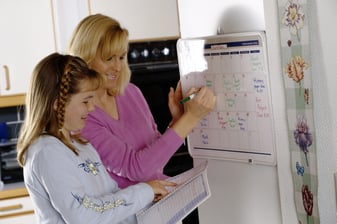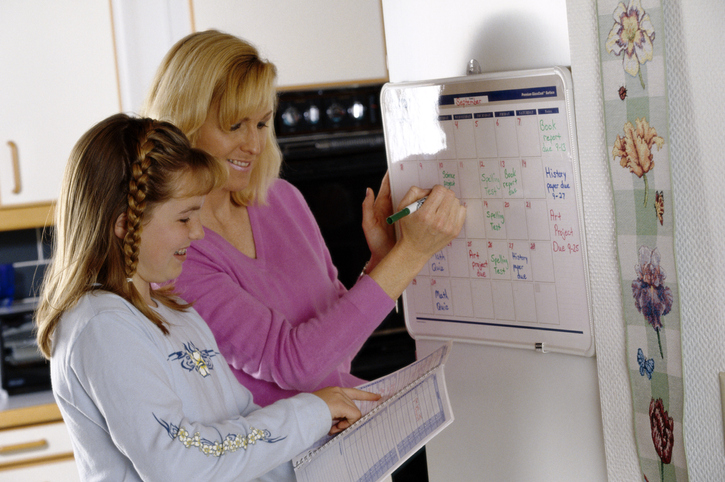 As the start of school approaches, parents are looking for ways to help their children succeed — and making it easier for them to get organized can be a big plus. This post will share practical tips from a range of experts.
As the start of school approaches, parents are looking for ways to help their children succeed — and making it easier for them to get organized can be a big plus. This post will share practical tips from a range of experts.
Have a Dedicated Space for School Work and School Supplies
AkronChildrens.org points out the importance of giving your children a space at home where they can do their homework. Because not every home is structured in the same way, systems can vary. In some houses, for example, there can be an entire room or a part of a room that can be dedicated for schoolwork, ideally in a place that’s as free from noise and other distractions as possible. In other homes, an easily movable lap desk may be the most practical solution — while other families can find a solution that’s somewhere in between these two.
With some families, children can share homework space at the same time without getting too sidetracked. In other families, children will need to sequentially have access to the space for their schoolwork so they can focus on what they’re doing, not what their siblings are up to. If the latter is true for you — and your home has adequate space — it can help to have different work areas for each child.
Ensure that your children have the supplies they need, located in an easily accessible place at home, and make it easy for them to take what they need to school each day. Pens, pencils and crayons, for example, can be kept in the home workspace and transported to school in a plastic pencil case. Each night, it can make sense to straighten up the workspace and check to see if any new supplies need to be purchased.
Set Up a Homework Schedule
Next up: develop a homework schedule that works well for your family. If possible, VeryWellFamily.com suggests getting some input from your children. That way, the schedule you create can have buy-in from them from the start. Some children, for example, might prefer to do their homework as soon as they get home. That way, they could have the rest of the evening free. Other children may need transition time between their school day and homework time.
As soon as you can, get a sense of how much time homework will take each evening. In some school systems, second graders will need 20 minutes per night, third graders will need 30 minutes, and fourth graders will need 40. This timeframe can vary significantly by school and teacher — and students can work at different paces.
Consistency is Key
Once you create a workable system, be consistent.
Children often benefit from reminders, with Scholastic.com recommending a homework calendar for each child. You can mark the dates of upcoming quizzes and tests in one color of pen, homework activities in another and study time in a third.
Final Tips
Here’s a final set of tips:
Harvard.edu notes that some children may be homework resisters and they may need more encouragement than others. To help, you can ask your child to list assignments in the order they think they should be done and ask why this order was selected. This can give your child a sense of control and provide practice in prioritizing. Ask how long a particular piece of homework should take and consider setting a timer to allow your child to recognize when they might be procrastinating. As a parent, your role in this is to “monitor, organize, motivate, and praise the homework effort as each piece is done.”
Ultimately, when homework time includes conversations about processes and progress, children can enjoy the support of a parent and they may complete the work more efficiently and at a higher standard.







